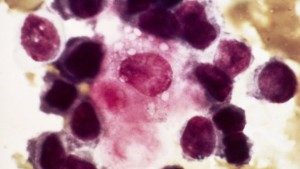Scientists have discovered a genetic clue to why some breast cancers relapse, which could lead to better treatment.
The latest research on breast cancer was presented at the European Cancer Congress (ECC) in Vienna by Rd. Lucy Yates, leader of the team from the Wellcome Trust Sanger Institute at the University of Cambridge, Xinhua.
The research team has found genetic mutations as clues to breast cancer relapse, which could tell whether breast cancer is likely to relapse after treatment.
While most breast cancer patients are able to be successfully treated, about one in five will see a relapse of the disease following treatment.
The researchers analyzed the genes in the tumors of 1,000 breast cancer patients, including 161 whose breast cancer came back. It turned out that there were genetic differences between primary and recurring tumors.
They found that some of the genetic mutations that drive breast cancers that relapse are relatively uncommon among cancers that do not relapse at the point of primary diagnosis. Targeting these genes with early treatments could be key to save this from happening.
The differences reflect genetic differences that can predispose a cancer to return, combined with mutations acquired throughout the period from first diagnosis to the subsequent relapse.
Some of these genetic alterations are potentially targetable with drugs.
This will help doctors to choose the right treatment combination as per the information about the primary tumor increases, and hence prevent overtreating patients who will not benefit . This will also help doctors to select the right therapy for each breast cancer patient.
Doctors might be able to use this knowledge to identify patients at high risk of their cancer returning and pick the best treatment for targeting particular genetic mutations.
This study underlines the fact that one should consider a recurrence of a cancer as a new event, and carefully select the right treatment for the recurrent tumor as opposed to just relying on information from the first occurrence. The team hopes that likelihood of a relapse will be determined upon diagnosis of an individual case, and a personalized therapy will then be offered to prevent it.
Researchers who pinpointed genetic factors associated with the return of breast cancer say their findings might lead to improved treatments.
For more information please visit: www.sanger.ac.uk

